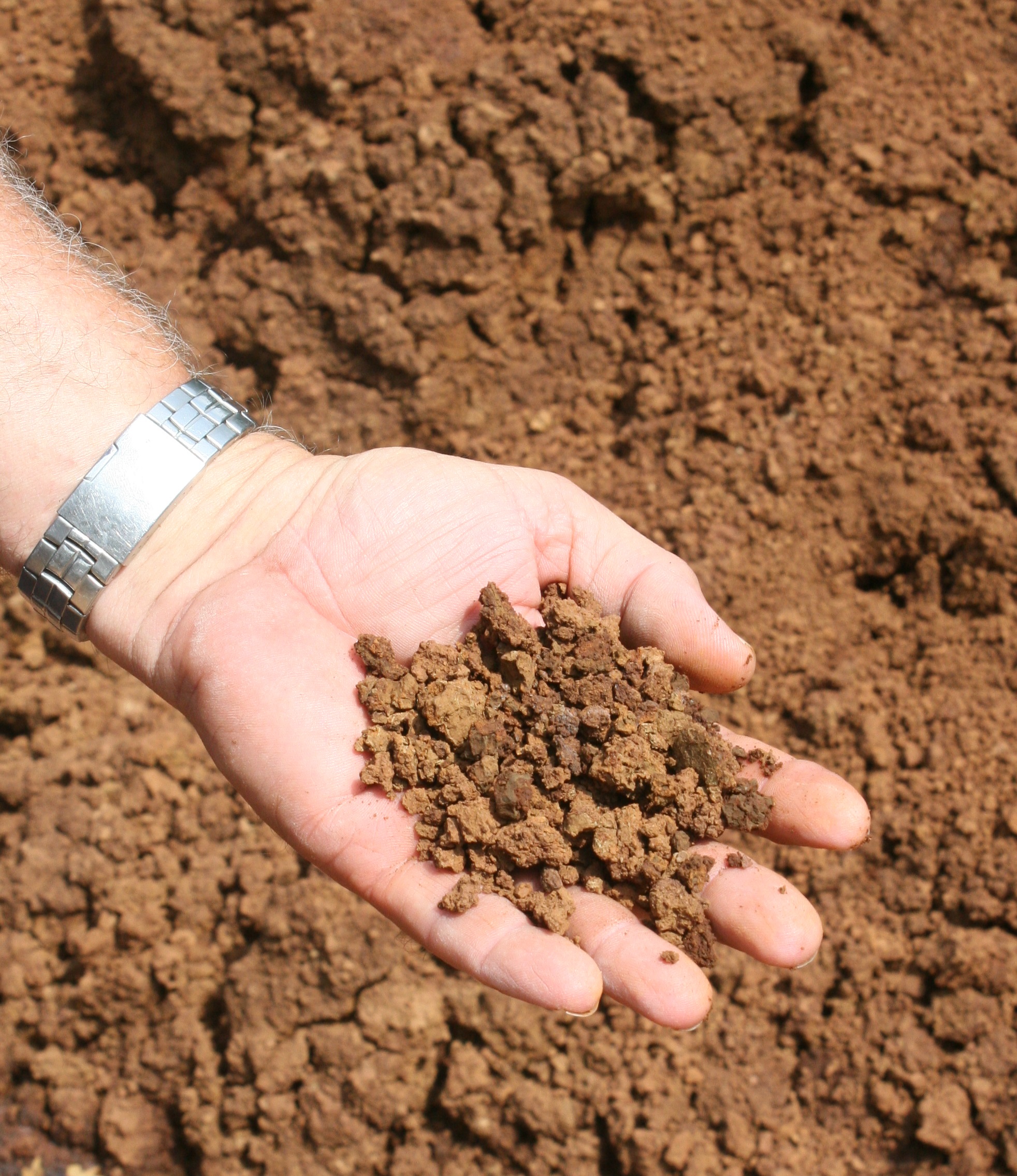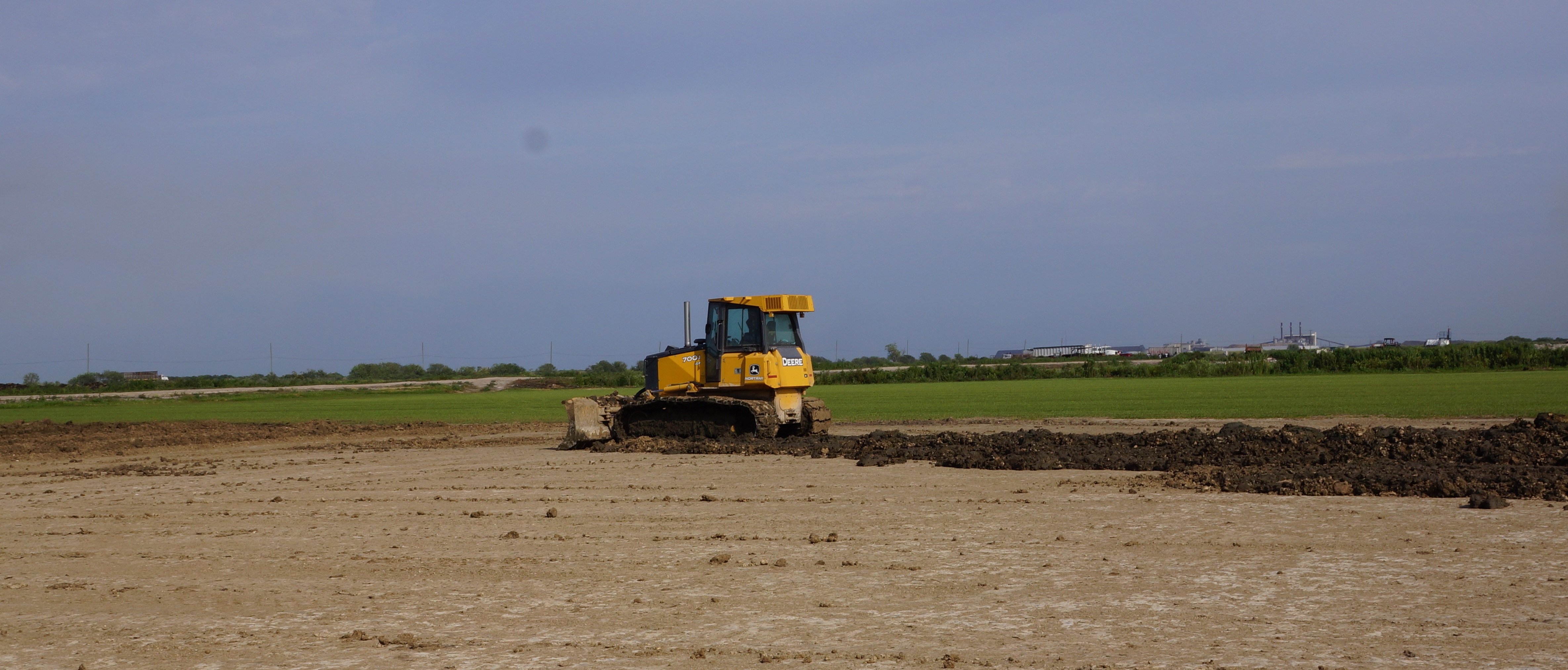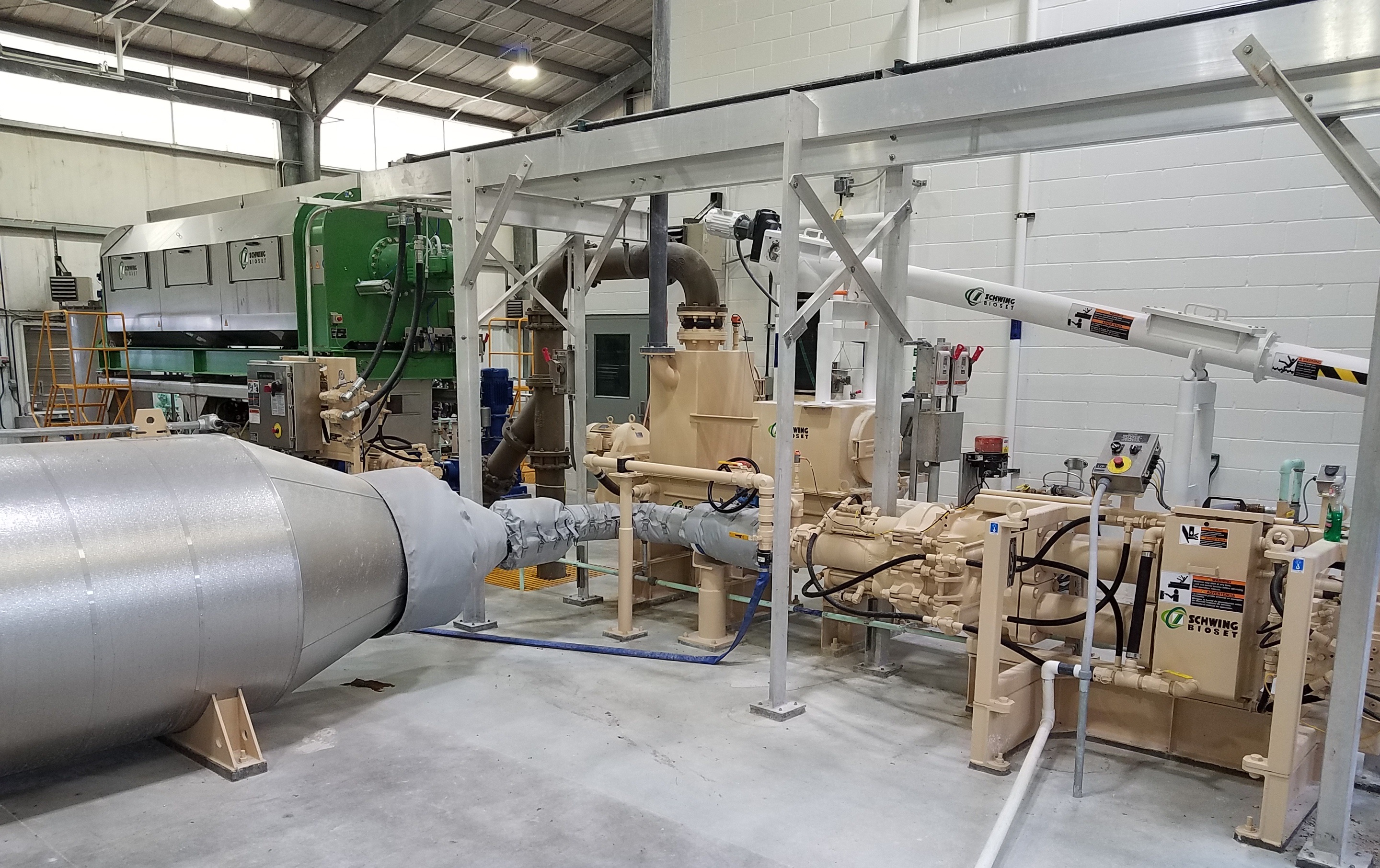Written by Kelly Kramer
Sewage Sludge vs. Biosolids in Plain English
The terms ‘biosolids’ and ‘sewage sludge’ are often used interchangeably, but they are certainly not one in the same.
Sewage sludge refers to the bodily waste we produce every day and the solids that are separated during the treatment of municipal wastewater generated in a treatment works. Sewage sludge is the raw material used to create biosolids, but at the wastewater treatment plant, those solids are then treated physically and chemically to produce a semisolid product known as biosolids.

Biosolids are nutrient-rich organic materials, and through biosolids management, solid residue from wastewater treatment is processed to reduce or eliminate pathogens and minimize odors, forming a safe, beneficial agricultural product.
By the time they are applied to land, the waste has been treated and turned into a safe alternative to chemical fertilizer, now resembling a material more like soil. Biosolids are treated to meet standards set by EPA and state regulators and are regularly monitored.
The EPA categorizes biosolids as Class A EQ (Exceptional Quality), Class A/AA, and Class B. The difference between these types depends on the quality of the material and the distinction helps ensure safe use.
Class A EQ are the highest quality of biosolids and are approved for use in gardens that grow food. Class A biosolids are the next highest-level quality, can be applied to land safely with no restrictions, and are commonly used as compost or fertilizer. Class B biosolids are lower quality than Class A, but are still approved as a compost or soil improvement for farmland with permits and regular monitoring. For more specific information on Class A vs. Class B, take a look our previous blog post.
Biosolids are one of the most researched soil amendments on the market. Utilities, trade associations, and regulators are continually researching the benefits and effects of using biosolids.
Benefits of Biosolids
Biosolids are a natural and endlessly renewable resource. Using biosolids reduces waste, recovers natural resources, generates renewable energy, lowers greenhouse gases, and improves the quality and health of soil.
Just some of the benefits that Biosolids provide include:
- They are a natural and renewable resource and are loaded with nutrients that are better for the environment, including waterways, than chemical fertilizers.
- Biosolids do more than just replace nutrients, they actually improve the health of the soil and allow for the slow release of key compounds like nitrogen and phosphorous. They help increase crop yields, boost plant growth, and promote rapid tree growth.
- The production and use of biosolids reduces waste, reduces the production and need of chemical fertilizers, and beneficial reuse helps keep them out of landfills and incinerators.
- Using biosolids lowers greenhouse gas emissions. Use on farms helps soil store carbon, which reduces greenhouse gases by keeping it out of the air.
- Biosolids help create resilient local economies, and farmers save money by using biosolids because they are less expensive than chemical fertilizers.
- Biosolids are an alternative to chemical fertilizers for healthy farm soils, community gardens, golf courses, and municipal parks, to name a few.
- The production of biosolids allows utilities to create a natural fuel that can be used for heat and power. Using energy from biosolids helps with electricity demand.

How Can Schwing Bioset Help Your Wastewater Treatment / Water Reclamation Plant?
Schwing Bioset is your complete biosolids management provider, helping hundreds of wastewater treatment plants around the world with our custom engineered solutions. We produce equipment that can treat, dewater, transport, and store biosolids.
Bioset Process (Treat)
The Bioset Process uses Alkaline Stabilization that produces Class A, Class AA, or Class AA/EQ Biosolids via the time vs. temperature equation and pH adjustment per the EPA 503 regulations. Temperature is achieved through the addition of sulfamic acid and high pH is achieved through the addition of quicklime. Biosolids and the additions are homogeneously mixed in a Schwing Bioset screw feeder and pumped through an insulated reactor.
Fluid Bed Dryers (Treat)
Fluid Bed Drying is our indirect-heated, thermal drying technology for producing Class A material from dewatered municipal wastewater treatment sludge. Based on the use of a fluidized bed dryer, the approach is to granulate and heat the biosolids within the dryer, and produce a dry, cool, dust-free material as the end-product.
The Schwing Bioset screw press provides a state-of-the-art solution for wastewater plants and consulting engineers looking to improve their dewatering process. The Screw Press offers next generation dewatering for those wanting a cost effective, durable, efficient unit to reduce the volume of their biosolids. Dewatering results are similar to high-speed centrifuges, but with a fraction of the energy and maintenance costs.
Piston Pumps (Transport)
A broad range of Schwing Bioset pump systems with pumping rates exceeding 1000 gpm and pumping pressures over 3,500 psi on some models provide numerous possibilities for conveyance of materials previously considered un-pumpable. Our units pump sludge and dewatered biosolids from Belt Presses, Centrifuges, Plate and Frame Presses, and Rotary Presses with dry solids content up to 56%.
Conveyors (Transport)
Screw conveyors are an efficient solution to collect, classify, transport, and distribute materials, or unload silos. Designed for use in demanding applications and to move a wide range of materials, the high-quality conveyors Schwing Bioset produces are available in multiple configurations to suit the challenges of every application.
Sliding Frames & Storage Silos (Store)
Sliding frame and push floor storage silos provide a low-cost method to store both large and small quantities of biosolids while awaiting final disposal. Silos can be used for intermediate storage, truck loading, or accepting foreign sludge hauled in from other plants as a truck receiving station.

To learn more about how we can help solve your plant’s challenges with Biosolids Management, visit our website or contact one of our Regional Managers.
References used in this post, and resources where you can find much more information, include:
Water Environment Federation (WEF)
A Plain English Guide to the EPA Part 503 Biosolids Rule
North East Biosolids and Residuals Association (NEBRA)
Download Our Brochures and Application Reports Subscribe to Start Receiving Schwing Bioset eNews
